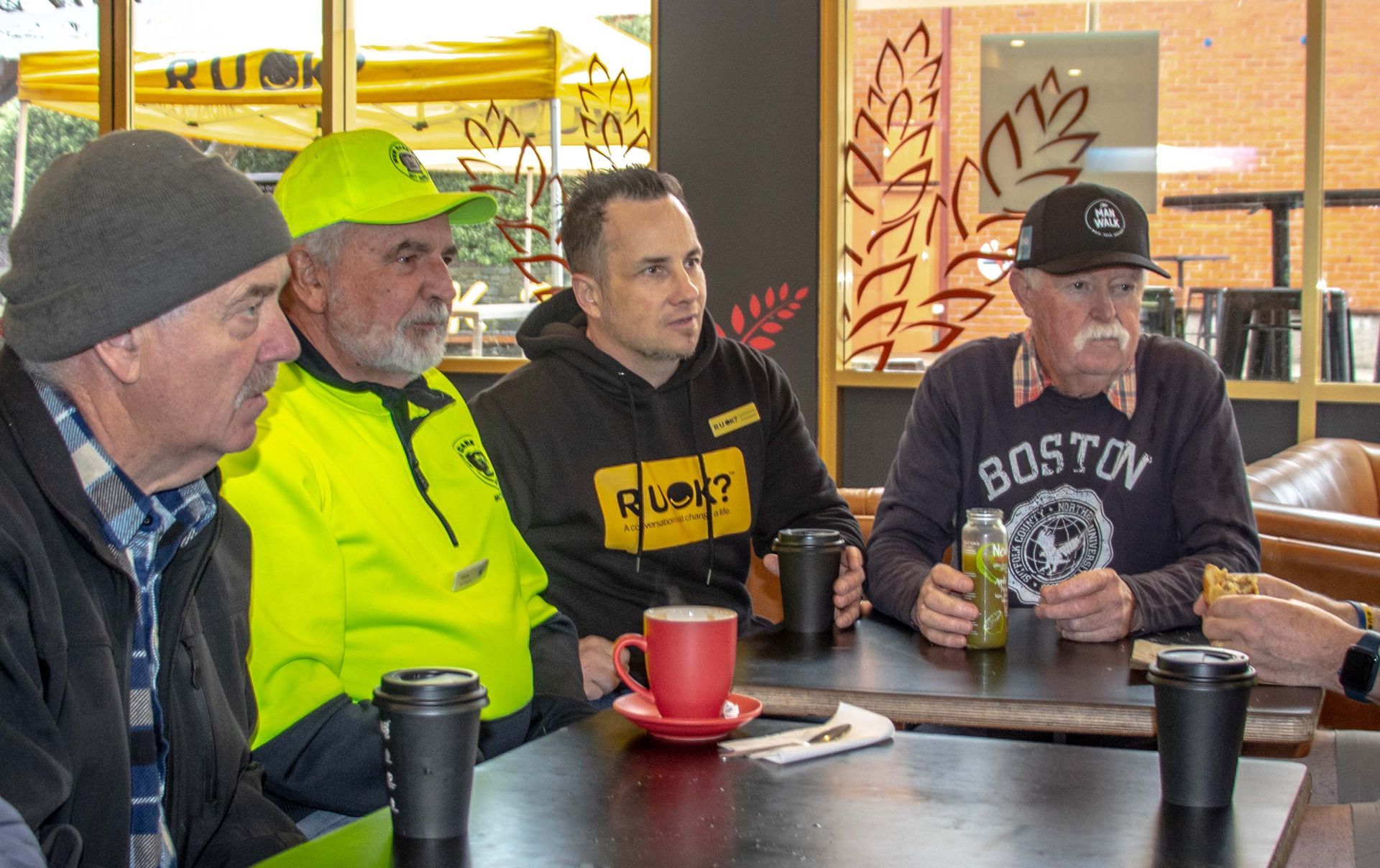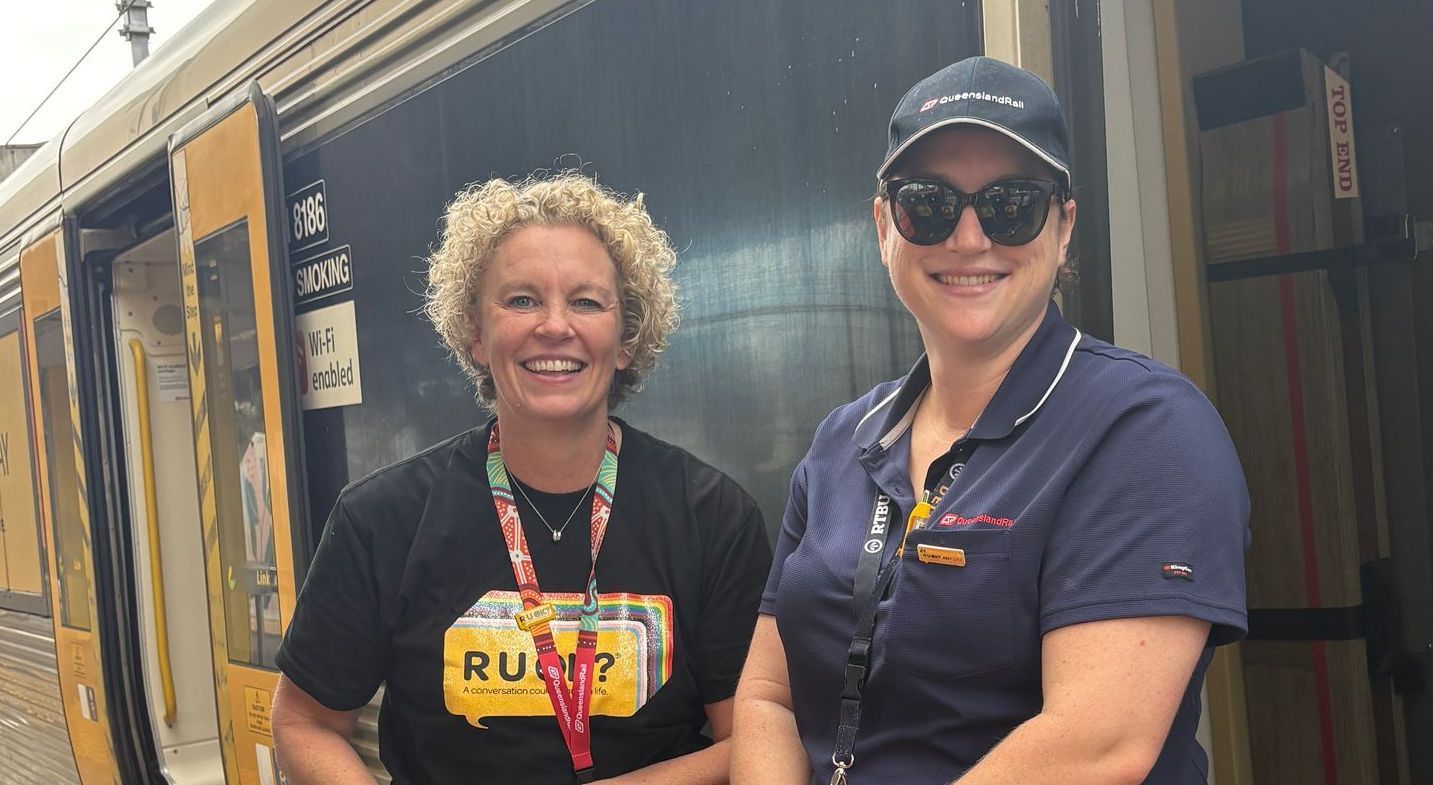How to support a mate who has lost someone to suicide

Content warning: this article discusses suicide.
If someone you know has lost a family member or friend to suicide, they will likely go through a very difficult bereavement journey, full of mixed emotions. As well as grief, feelings such as shock, disbelief, isolation and anger can be experienced. Many people begin to search for an explanation, or even question their own actions prior to losing their loved one. If your mate has lost someone to suicide you might be unsure what to say, or how best to support them. Everyone’s bereavement experience is different, but the practical and emotional support of family and friends can make a real difference. To help you be there for your friend, we’ve put together some important signs to be aware of and tips for how you can offer support.

Spot The Signs
The often sudden and sometimes unexpected nature of suicide can be traumatic and make processing emotions and feelings challenging. While it’s normal for your friend to experience a range of emotions during this tough time, it’s important to be aware of any signs that your friend might need additional support.
Fixation on ‘What if?’: A sense of guilt and questioning is commonly experienced by people who have lost a loved one to suicide. Your friend might ask a series of ‘What ifs’ relating to their actions. This is their way of trying to make sense of their loss, and it’s important you listen without attempting to provide answers. But if you notice your friend constantly talking over or fixating on past events, their conversations with the person, their actions and other factors, they could be blaming themselves which can have serious impacts on their mental health and wellbeing.
Risky behaviours: Are they drinking more? Taking drugs? Getting into physical fights? Or engaging in risky behaviours that they never used to? When people feel down, they sometimes engage in harmful behaviours as a way of coping with their feelings.
Existential dread: Have they made comments about life being meaningless or pointless? Traumatic or life-altering experiences such as losing someone to suicide can result in one questioning their purpose in the world, the meaning of life, and what comes after death.
Missing in action: Whether it’s school, university, friend gatherings, sport or other activities they used to attend and enjoy – have they stopped coming? Are they cancelling last minute? Does it feel like you never see them anymore? Your friend might feel alone in their loss, and like no one understands what they’re going through. They might not have the energy to socialise or struggle to ‘put on a brave face’.
Tiredness: Dark circles under their eyes, staying online all night, falling asleep in class and having little energy could indicate that your friend isn’t getting much sleep. A lack of sleep has a ripple effect on our ability to regulate emotions and manage difficult feelings.



What To Say & Do
Your mate might feel alone and isolated in their grief because of the stigma surrounding suicide. They may feel the pain of loss, but believe they aren’t allowed to express it. Even if you want to be there for your friend, you might feel awkward and unsure of what to say or do. You might worry about saying the wrong thing. Grief is complex and the support of friends is really important. We’ve put together some tips on how you can support your mate.
Check in regularly: Reach out to your friend when you hear of their loss and let them know you’re thinking of them, and there to support. If you notice some of the signs mentioned above, check in by following our four steps of an R U OK? conversation. If your friend isn’t ready to talk about what they’re going through, don’t pressure them. Everyone processes loss differently, and it may take them time to talk. Instead, let them know that whenever they’re feeling up for it, you're there to listen and be there for them. Without bombarding, continue to check in with your friend. You can make this casual, for example, ‘I am in your area this afternoon, if you’re up for a walk I can come by’, or ‘I am at the shops, would you like me to grab us coffees and drop off some stuff?’. There is so timetable for grief but your continued support can provide comfort and reassurance.
Listen actively and avoid platitudes: If your friend is open to talking, make sure you have enough time to listen and give them your full attention. You don’t need to offer advice or solutions, talking things over out loud with someone is comfort in itself. Try to avoid unhelpful phrases like ‘it will get easier’, ‘you’re so strong’ or ‘time will heal’ – as this can put pressure on them to behave a certain way while grieving. It’s also important to avoid making assumptions about the circumstances or reasons surrounding the person's suicide. Speculating or trying to find answers can be distressing and unhelpful. Allow your friend to share information if and when they’re ready.
Let them feel: Create a safe space for your friend to express their feelings without judgment. Your friend might go through waves of emotions, repeat themselves or act out of character at times. Remind them there is no one way to grieve, and it’s OK for them to take each day as it comes. Don’t try to distract them from thinking about the person who has died or focus on the future. Even though is it painful, and you might be tempted to shift their focus, they need to experience it. Grieving is an important part of healing.
Learn about what they’re going through: It’s OK if you don’t know what it feels like to be in their shoes. But finding out more about suicide loss and grief may help you better understand what they’re experiencing and how they’re feeling. It can help you approach conversations empathetically and prevent you from taking certain changes in mood personally.
Offer practical support: Grief can make everyday tasks and decisions more difficult. Your mate might not know what support to ask for, so instead be proactive and offer practical help. Cooking, grocery shopping, cleaning and transportation are just some ways you can reduce your friend’s to-do list and help them feel less overwhelmed.
Encourage them to seek professional help: Seeking professional support while grieving is very normal and helpful for healing. Let your friend know that support from a psychologist, counsellor or social worker may help them work through recurring thoughts and feelings. You could offer to help them book the appointment and accompany them if they would like. If your friend shares they too are experiencing suicidal thoughts, it is important that you try to remain calm and explain that professional support is crucial to help them feel better. Offer to help them search for the right professional and remind them you aren’t going anywhere. If you are ever worried about their safety, call Triple Zero (000).
HAVE SOMEONE YOU CAN TALK TO

Supporting someone who has lost a loved one to suicide can be challenging and emotionally demanding. It might raise fears, concerns or questions for you. While you want to be there for your friend, it’s also important that you have someone to talk to about new feelings that arise. Whether it’s a trusted mate, parent or professional, seek support for yourself too. Remember, we’re better able to help others when we look after ourselves!
Helpful Resources
Keep these resources handy for you and your friend.
Understanding suicide bereavement
Tips on how to support a friend after suicide loss by Beyond Blue
Care Pack to help your friend navigate grief
Tips, advice and resources after losing someone to suicide by Suicide Call Back Service
How to support a grieving friend by Griefline
Support lines and chat rooms: for your friend to seek professional help
Suicide Call Back Service offers phone and online chat support for people who have lost someone to suicide, as well as friends 1300 659 467 (24/7)
Postvention Australia provide information on support groups for people who bereaved by suicide to connect
Griefline 1300 845 745 (8am – 8pm, Monday to Friday AEST)
headspace 1800 650 890 (9am – 1am AEST every day)
ReachOut online forums to connect with people going through similar experiences
Lifeline provides support if you are worried your friend might be experiencing suicidal thoughts 13 11 14 (24/7)
Standby Support After Suicide provides support to anyone who has been bereaved or impacted by suicide (1300 727 247)






















